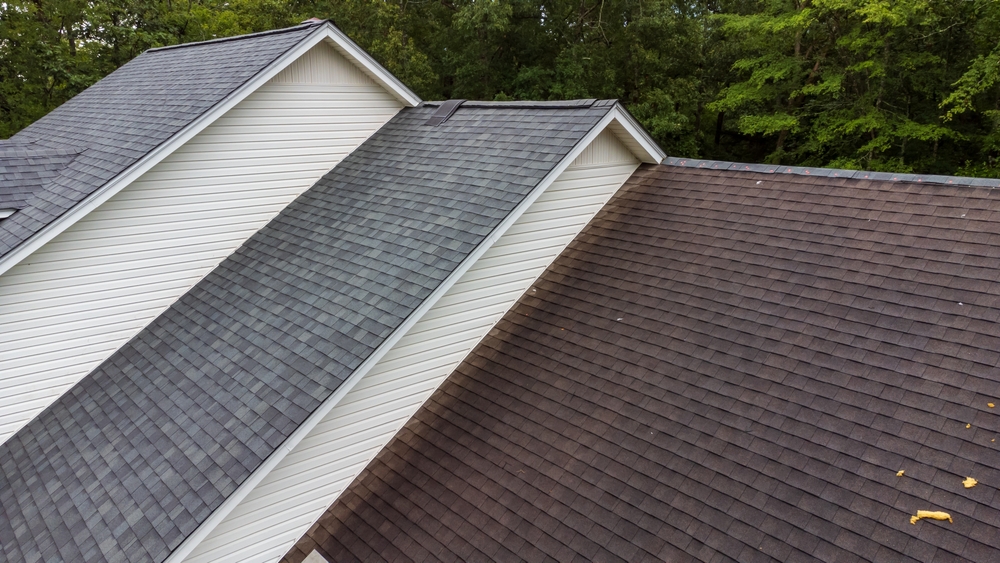
When it comes to selecting roofing materials for Florida homes, homeowners face unique challenges and opportunities. Given Florida’s distinct climate, which includes intense heat, heavy rainfall, and occasional hurricanes, choosing the right roofing material is crucial for ensuring longevity, durability, and energy efficiency. In this blog, we’ll explore the best roofing materials tailored for Florida’s specific conditions.
Understanding Florida’s Climate and Its Impact on Roofing
Florida’s climate is characterized by high humidity, frequent rain showers, and strong winds. These factors necessitate roofing materials that can withstand extreme weather conditions while providing adequate insulation and protection.
Key Climate Considerations:
- Heat: Florida experiences high temperatures year-round, which can lead to roofing materials expanding and contracting. Materials with high thermal resistance are ideal.
- Rain: Frequent rain and high humidity levels can lead to mold and algae growth. Roofing materials should be resistant to moisture and easy to maintain.
- Wind: Hurricane season brings strong winds that can cause damage. Roofing materials must be able to withstand high wind speeds and flying debris.
Asphalt Shingles: A Popular Choice
Overview: Asphalt shingles are one of the most commonly used roofing materials in Florida. They offer a balance between affordability and performance, making them a popular choice for many homeowners.
Advantages:
- Cost-Effective: Asphalt shingles are relatively inexpensive compared to other roofing materials.
- Variety: They come in a wide range of colors and styles, allowing homeowners to match their roofing with their home’s aesthetic.
- Ease of Installation: They are easy to install, which can reduce labor costs.
Considerations:
- Durability: While they are durable, asphalt shingles may have a shorter lifespan in Florida’s extreme conditions compared to other materials.
- Maintenance: Regular maintenance is needed to ensure they remain in good condition.
Metal Roofing: Durability and Efficiency
Overview: Metal roofing has become increasingly popular in Florida due to its durability and energy efficiency. Materials such as aluminum, steel, and copper are commonly used.
Advantages:
- Durability: Metal roofs can withstand high winds, heavy rain, and extreme heat, making them ideal for Florida’s weather.
- Energy Efficiency: Metal reflects sunlight, which can help reduce cooling costs in hot climates.
- Longevity: Metal roofs have a long lifespan, often lasting 40-70 years with proper maintenance.
Considerations:
- Cost: Metal roofing can be more expensive upfront compared to asphalt shingles.
- Noise: Metal roofs can be noisy during heavy rain or hail unless properly insulated.
Clay and Concrete Tiles: A Classic Choice
Overview: Clay and concrete tiles are another popular choice for Florida homes, known for their durability and aesthetic appeal.
Advantages:
- Durability: Both clay and concrete tiles are resistant to wind, heat, and fire, making them a strong option for Florida’s climate.
- Aesthetic Appeal: These materials offer a distinctive look and come in various colors and styles.
- Energy Efficiency: They provide excellent thermal insulation, helping to keep homes cooler.
Considerations:
- Weight: Clay and concrete tiles are heavy, requiring a reinforced roof structure to support their weight.
- Cost: They are generally more expensive both in terms of materials and installation.
Synthetic Roofing Materials: Innovation and Flexibility
Overview: Synthetic roofing materials, such as synthetic shingles and rubber roofing, are relatively new but offer many benefits for Florida homeowners.
Advantages:
- Lightweight: Synthetic materials are lighter than traditional options, reducing the load on the roof structure.
- Durability: They are designed to withstand harsh weather conditions, including high winds and heavy rains.
- Variety: Synthetic materials can mimic the appearance of traditional roofing materials while offering enhanced performance.
Considerations:
- Cost: The cost can vary widely depending on the type and brand of synthetic roofing.
- Newness: Being relatively new, some synthetic materials may not have a long track record of performance.
Choosing the Right Roofing Material for Your Florida Home
When selecting roofing materials for your Florida home, consider the following factors:
- Climate Compatibility: Choose materials that can handle Florida’s heat, rain, and wind.
- Budget: Balance your budget with the long-term benefits and durability of the roofing material.
- Aesthetic Preferences: Select a material that complements the architectural style of your home.
- Maintenance Requirements: Consider how much maintenance the material will need and whether you can commit to it.
Conclusion
Choosing the best roofing material for Florida homes involves understanding the unique demands of the local climate and matching them with the strengths of various roofing options. Asphalt shingles, metal roofing, clay and concrete tiles, and synthetic materials each offer distinct advantages. By carefully considering your home’s specific needs and preferences, you can ensure that your roofing choice will provide durability, energy efficiency, and aesthetic appeal for years to come.
